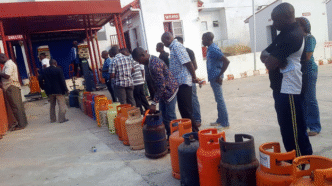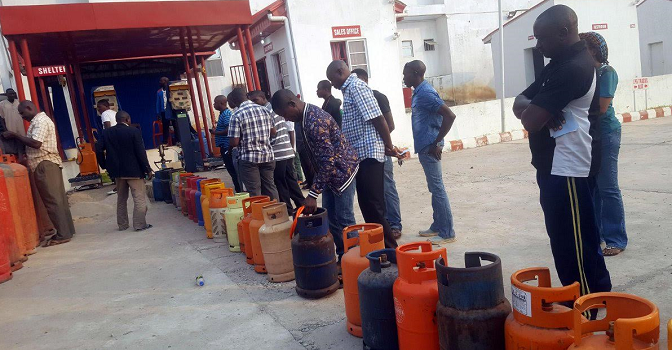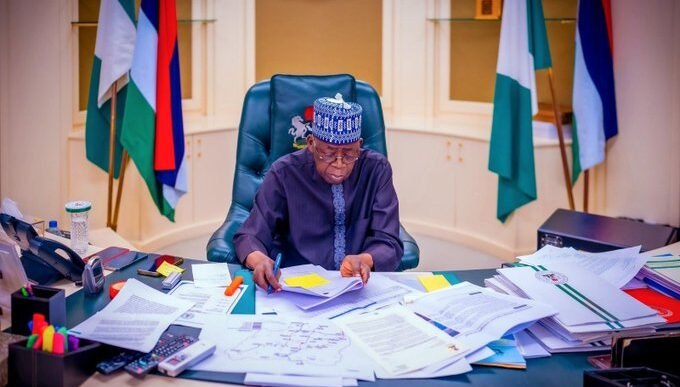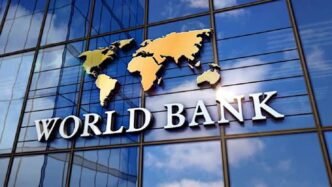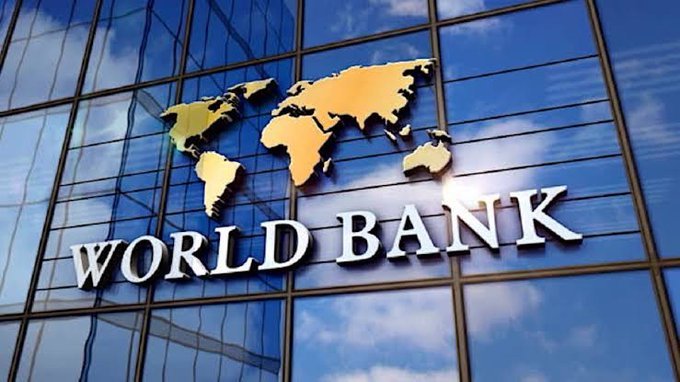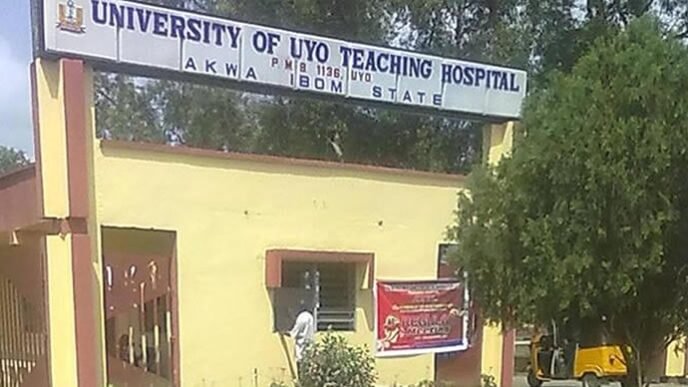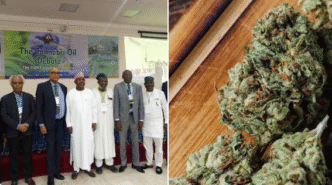The price of Liquefied Petroleum Gas (LPG), commonly known as cooking gas, has soared to unprecedented levels across Nigeria, sparking public frustration and renewed debate over energy affordability. In several parts of the country, a kilogram of cooking gas now sells for between ₦1,800 and ₦2,000, marking one of the steepest price hikes in recent years.
According to the Nigerian Association of Liquefied Petroleum Gas Marketers (NALPGAM), the latest spike is not the result of any official price adjustment or government directive but rather the outcome of temporary supply disruptions and opportunistic pricing by some operators in the distribution chain.
Marketers Cite Supply Constraints and Exploitation
Speaking on Channels Television’s The Morning Brief on Wednesday, the National President of NALPGAM, Oladapo Olatunbosun, attributed the sharp increase to a combination of logistical challenges and market speculation. He said the current price volatility is largely driven by limited supply from key terminals, disruptions in domestic transportation, and the exploitation of the situation by middlemen.
“There have been temporary disruptions in supply from some depots and terminals, and that has created a kind of panic in the market,” Olatunbosun explained. “Unfortunately, some operators have taken advantage of the situation to inflate prices beyond reasonable margins.”
He stressed that while marketers have no control over certain upstream challenges, the association is working closely with major suppliers and regulators to restore stability in the LPG market.
Cooking Gas Prices Hit Record Highs Nationwide
Field reports indicate that the price of LPG has surged dramatically within the past two weeks. In Lagos, Abuja, and Port Harcourt, consumers are now paying between ₦1,850 and ₦2,000 per kilogram, compared to about ₦1,200 to ₦1,400 in September. In states such as Kano, Enugu, and Rivers, refilling a 12.5kg cylinder costs between ₦22,000 and ₦25,000, depending on location and supplier.
Traders at the popular Oyingbo and Berger gas outlets in Lagos confirmed that supply from major terminals like Apapa and NNPC depots had dropped sharply, forcing them to adjust prices upward. “The supply has not been consistent, and the few trucks that arrive now cost more to offload and transport,” said a dealer who identified himself as Ahmed Suleiman.
In the Federal Capital Territory, several households and small food vendors have been forced to reduce their gas usage, with many reverting temporarily to charcoal and firewood — a trend that experts warn could worsen environmental pollution.
Industry Analysis: What’s Driving the Supply Shortage
Industry observers say several factors are responsible for the ongoing scarcity and price increase. One key issue is the delay in product delivery from offshore terminals due to foreign exchange challenges and high import costs. Although Nigeria produces LPG domestically through the Nigeria LNG (NLNG), the country still relies on imports to meet about 40% of its total demand.
A recent reduction in LPG supply from NLNG to the domestic market, reportedly due to maintenance work and export obligations, has compounded the problem. Transportation bottlenecks — particularly in trucking and vessel availability — have also disrupted supply to inland depots.
Additionally, the weakening naira against the U.S. dollar has worsened import costs for marketers who source products from international suppliers. As of early October, the naira hovered around ₦1,500/$ at the parallel market, significantly impacting the cost of imported petroleum products, including LPG.
According to a Lagos-based energy analyst, Dr. Chika Mbah, the interplay between supply chain disruptions and forex volatility has created a “perfect storm” in the domestic gas market. “Even if NLNG increases its domestic allocation, the logistical challenges and dollar scarcity mean prices will remain unstable for a while,” he said.
Marketers Call for Government Intervention
The NALPGAM president urged the federal government to intervene urgently to stabilize the market and prevent further hardship for consumers. Olatunbosun called for an immediate review of LPG supply policies, increased monitoring of depot activities, and the enforcement of fair pricing practices.
“We need the Nigerian Midstream and Downstream Petroleum Regulatory Authority (NMDPRA) to step in and address the distortions,” he said. “There must be better coordination between producers, importers, and distributors to ensure that the product is available and affordable.”
He also called on the government to address infrastructural bottlenecks such as inadequate storage facilities, limited coastal jetties, and high transportation costs, which continue to undermine the efficiency of LPG distribution nationwide.
Consumers Bear the Brunt
For millions of Nigerian households, the rising price of cooking gas has become a pressing concern. Many urban families, who had switched from kerosene and charcoal to LPG in recent years due to its cleaner and faster burning qualities, are now struggling to sustain its use.
A civil servant in Abuja, Mrs. Gloria Amadi, lamented the situation. “We filled our 12.5kg cylinder for ₦24,000 this week. Just last month, it was ₦16,000. I don’t know how people will cope if it goes any higher,” she said.
Restaurant operators and food vendors are also counting losses as they grapple with the cost surge. In Lagos, a roadside caterer, Ngozi Okafor, said the increase had forced her to raise food prices. “I used to spend about ₦8,000 weekly on gas. Now it’s almost ₦14,000. I can’t keep selling at the old prices,” she said.
The rising cost of cooking gas is also threatening to reverse Nigeria’s decade-long campaign to promote clean energy adoption. Experts fear that more households may revert to charcoal and firewood, increasing deforestation and carbon emissions.
Government’s Silence and Regulatory Outlook
As of press time, the Ministry of Petroleum Resources and the NMDPRA had yet to issue an official statement on the latest price surge. However, senior officials within the regulatory agency privately acknowledged that the market situation remains under review and that efforts are underway to increase supply through collaboration with domestic producers.
In previous years, the government has resisted calls to fix cooking gas prices, maintaining that LPG operates under a deregulated framework where market forces determine prices. This position, while aimed at encouraging private investment, has also exposed consumers to frequent price volatility.
A senior energy correspondent with Energy Review Nigeria, Tunde Falade, noted that the current situation underscores the fragility of Nigeria’s energy supply chain. “The LPG market reflects the broader structural issues in Nigeria’s energy sector — dependence on imports, inadequate storage, and poor coordination between regulators and private operators,” he said.
Calls for Local Production Boost
Industry stakeholders have repeatedly advocated for increased domestic production and investment in gas infrastructure. They argue that expanding local processing and storage facilities would not only stabilize prices but also create jobs and support Nigeria’s transition toward cleaner energy sources.
The Nigeria LNG Limited has in recent years pledged to increase its domestic supply allocation to 450,000 metric tonnes annually. However, actual distribution has often fallen short due to operational disruptions, export priorities, and logistical delays.
Experts are urging the government to enforce local supply commitments and incentivize private investments in mini-LPG plants across the country. “If we can process and distribute more gas domestically, we will not be this vulnerable to market shocks,” said Dr. Mbah.
Outlook: Relief May Take Weeks
While marketers and regulators continue to engage in discussions, consumers may have to brace for continued price fluctuations in the coming weeks. According to NALPGAM, the supply situation is expected to improve gradually once ongoing logistics issues are resolved and more vessels deliver to local depots.
In the meantime, consumers are advised to buy only from authorized gas retailers to avoid substandard products and safety hazards.
Despite the challenges, energy experts believe Nigeria’s long-term prospects for gas affordability remain strong — provided that regulatory agencies enforce transparency, expand infrastructure, and strengthen domestic production.
As the cost of living continues to rise, the price of cooking gas has once again become a litmus test for the government’s commitment to cushioning economic pressures on citizens and delivering sustainable energy for all.

